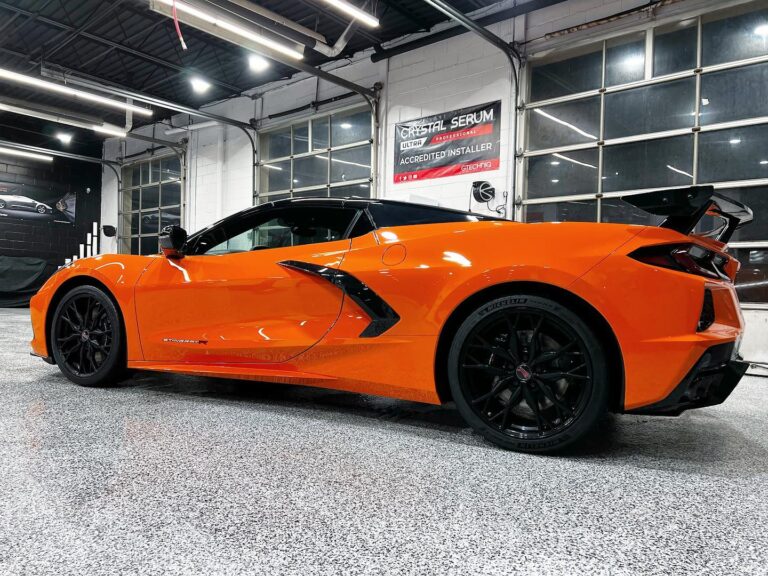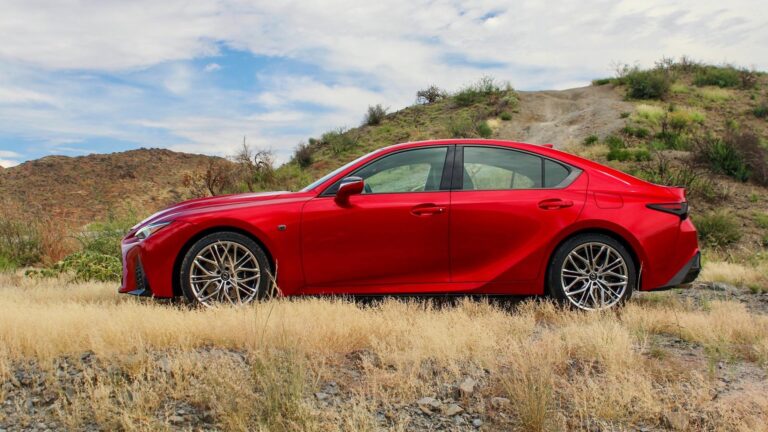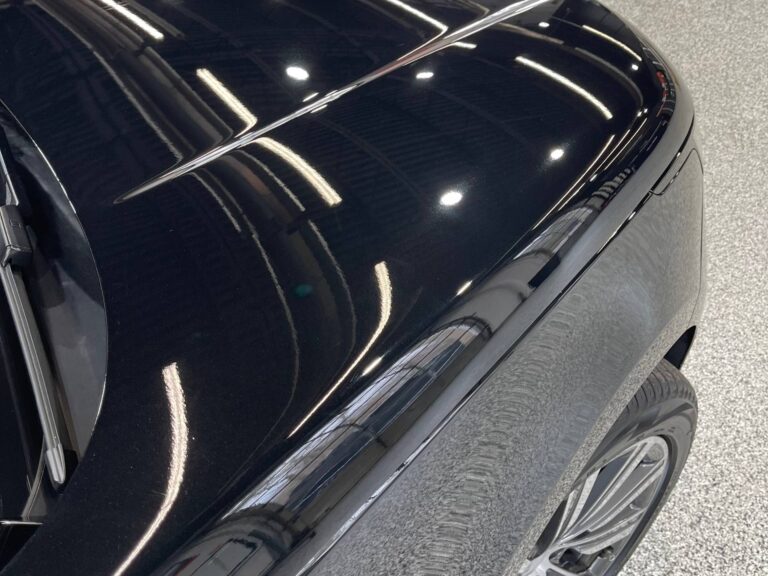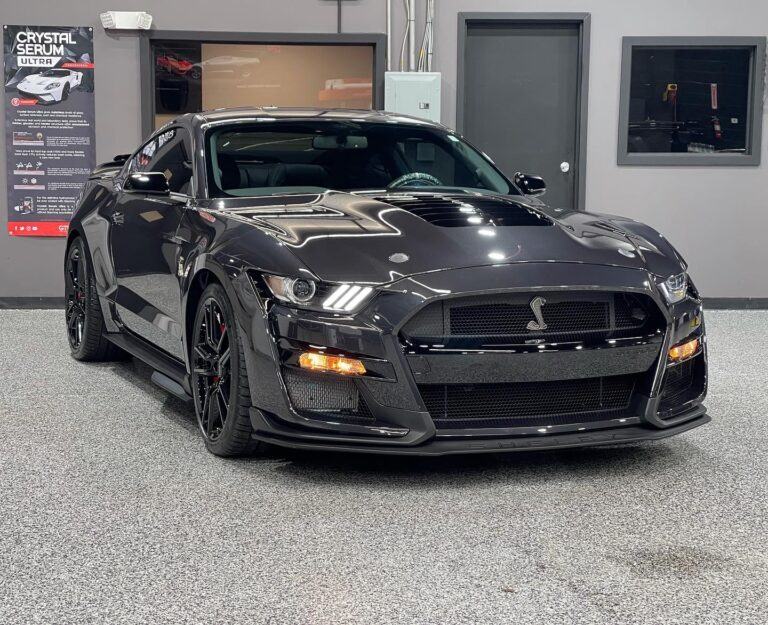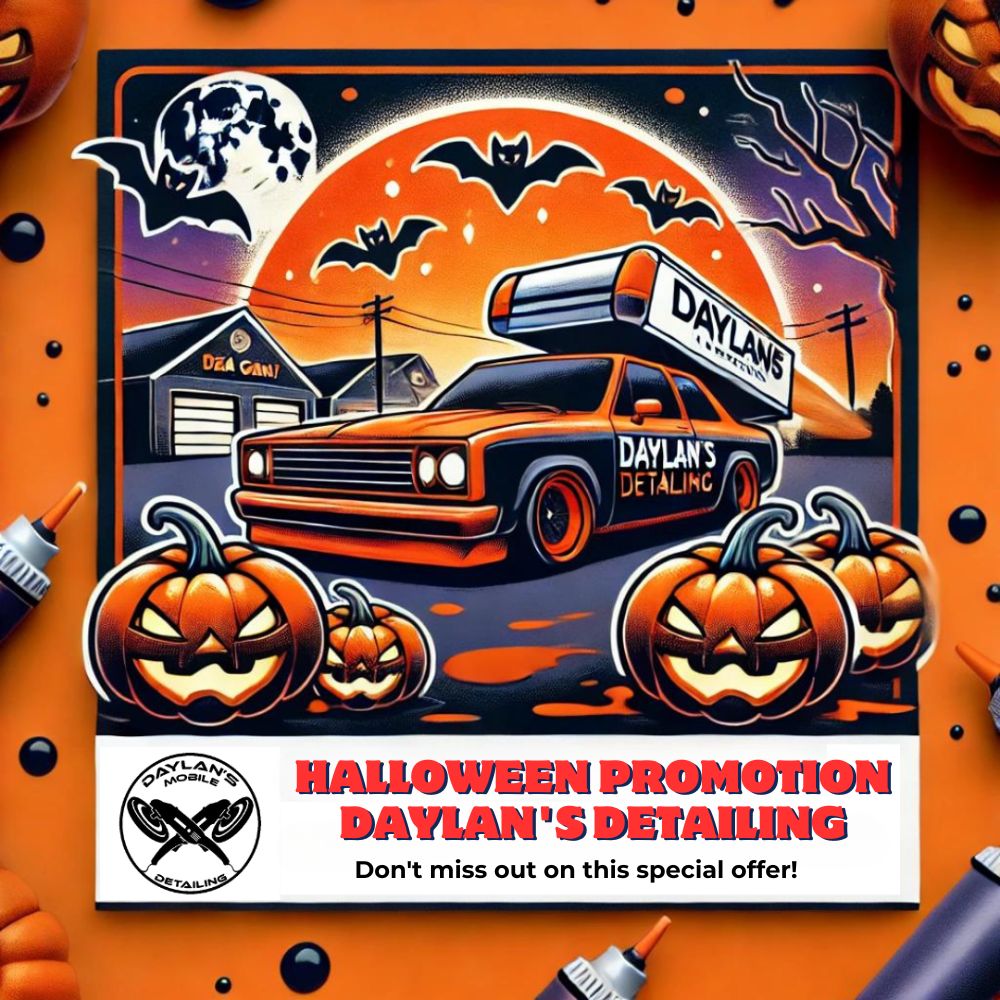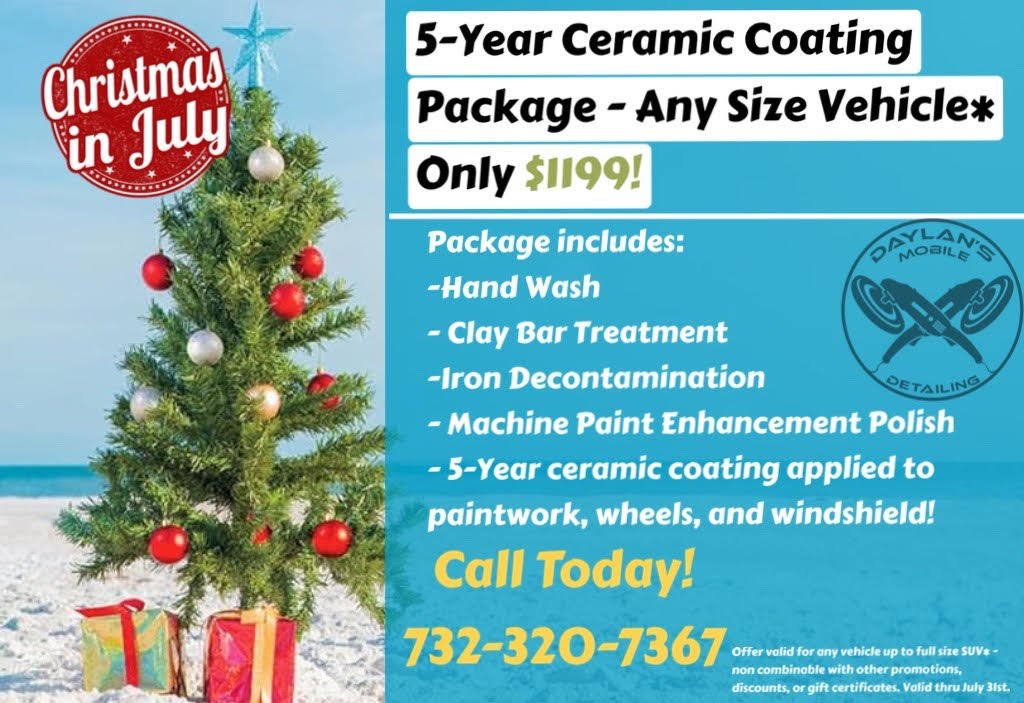What If It Rains After Getting A Ceramic Coating Applied?
Ceramic coating has gained immense popularity in the automotive industry due to the exceptional level of protection it provides to a wide range of vehicles. This innovative technology provides a robust shield against various environmental elements, including UV rays, dirt, dust, and even light scratches. However, one common concern that car owners often have is what happens if it rains shortly after getting a ceramic coating applied.
In this article, from the expert team at Daylan’s Detailing in Toms River, NJ we will explore the effectiveness of ceramic coating, its curing time, the effects of rain during the curing period, and what you can do to ensure optimal results for your ceramic coating..
Why is ceramic coating so effective?
Ceramic coating is a liquid polymer that chemically bonds to the surface of your vehicle, creating a durable and transparent layer. This layer acts as a sacrificial barrier, shielding your car’s paint from harmful external factors. Unlike traditional waxes or sealants, ceramic coatings are highly resistant to UV damage, chemicals, oxidation, and staining. The hydrophobic properties of ceramic coating also make it easier to clean your vehicle and maintain that glossy appearance for an extended period.
Ceramic coating curing time
After the application of a ceramic coating, it is important to allow sufficient time for the coating to cure and establish a strong bond with the vehicle’s surface. The curing time can vary depending on several factors, including the specific product and brand of the ceramic coating, as well as environmental conditions such as temperature and humidity.
Different ceramic coatings may have slightly different curing times, so it is essential to follow the manufacturer’s instructions for the particular product you are using. Generally, most ceramic coatings require a minimum of 24 to 72 hours to cure fully. However, some coatings may have extended curing times of up to a few weeks to achieve their maximum hardness and durability.
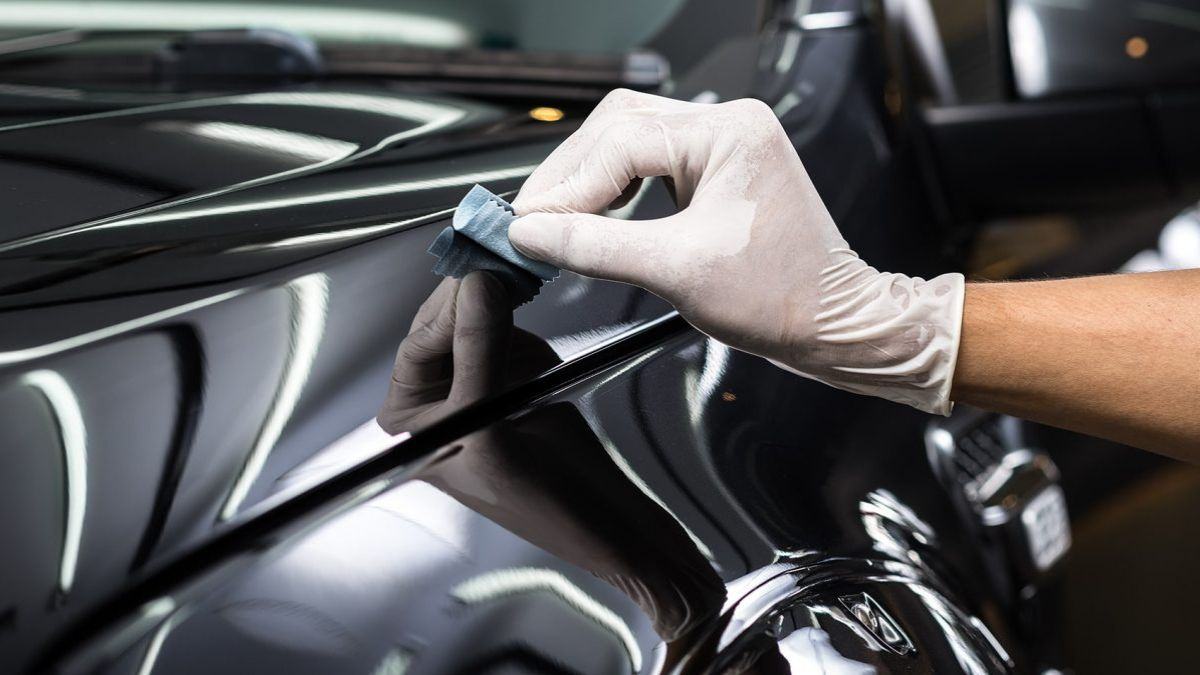
During the curing period, it is crucial to handle your vehicle with care and take precautions to avoid any potential damage to the coating. The coating is still in a vulnerable state and can be susceptible to environmental factors, including rain, which may impact its effectiveness if not properly managed.
When it comes to the curing process, temperature and humidity play significant roles. Higher temperatures generally accelerate the curing time, while lower temperatures can prolong it. Similarly, higher humidity levels can increase the curing time, while lower humidity may speed it up. It is important to note that extreme weather conditions, such as excessive heat or cold, can negatively affect the curing process and the overall performance of the coating.
The effects of rain on ceramic coating during the curing period
When it comes to rain during the curing period of a ceramic coating, it is essential to consider the potential effects it can have on the coating’s performance. While a light drizzle may not cause significant harm, heavier rainfall or prolonged exposure to water can interfere with the curing process and impact the overall effectiveness of the coating.
One of the immediate concerns with rain on a freshly applied ceramic coating is the formation of water droplets on the surface. These droplets can leave marks or streaks on the coating as the water evaporates, resulting in an uneven or patchy appearance. This can be particularly noticeable on darker-colored vehicles, where water spots become more visible.
Moreover, rainwater itself may contain various contaminants that can potentially bond to the uncured coating. Dirt, minerals, and pollutants present in rainwater can adhere to the coating’s surface, compromising its ability to provide optimal protection. These contaminants can create a barrier between the coating and the vehicle’s paint, reducing the coating’s effectiveness and potentially leading to premature wear or damage.

One specific concern is acid rain, which can be more damaging to both the uncured and cured ceramic coating. Acid rain is rainwater that contains higher levels of acidic compounds due to pollution in the atmosphere. When acid rain comes into contact with a fresh ceramic coating, the acidic compounds can react with the coating’s chemical composition, potentially causing etching or corrosion. This can result in diminished protection and a compromised appearance.
To minimize the potential negative effects of rain during the curing period, it is advisable to take preventive measures. If you know that rain is expected, try to park your vehicle in a covered area such as a garage or carport. This provides protection against rain and minimizes the risk of water damage to the uncured coating.
In cases where your vehicle does get wet during the curing period due to rain, it is important to handle it with care. Avoid wiping the surface, as this can cause swirl marks or damage to the uncured coating. Instead, gently pat dry any water using a soft microfiber cloth. By patting the water gently, you reduce the risk of creating marks or disrupting the curing process.
What to do when the ceramic coating is curing
To ensure the best possible outcome when it rains during the ceramic coating curing period, here are some steps you can take:
Shelter your vehicle
If you know that rain is expected, try to park your car in a covered area like a garage or carport. This provides protection against rain and minimizes the risk of water damage to the uncured coating.
Avoid washing your vehicle
Refrain from washing your car during the curing period. This includes using high-pressure water, automatic car washes, or hand washing. Wait until the coating has fully cured before performing any cleaning or maintenance routines.
Pat dry any water
If your vehicle gets wet during the curing process, gently pat dry the water using a soft microfiber cloth. Avoid wiping the surface, as this can cause swirl marks or damage to the uncured ceramic coating.
Be patient
It’s essential to allow sufficient time for the ceramic coating to cure properly. Even if it rains during the process, most coatings will still cure effectively if given enough time. Follow the manufacturer’s instructions regarding curing time to ensure optimal results.
Read more: How Much Does It Cost To Ceramic Coat A Car?
Where can you find the best ceramic coating services in Toms River, NJ?
Looking to take your vehicle’s paint protection to the next level? Look no further than Daylan’s Detailing in Toms River, NJ, for top-notch ceramic coating services. Our skilled technicians specialize in applying premium ceramic coatings that provide unmatched durability and long-lasting shine.
Our team utilizes cutting-edge techniques and high-quality ceramic coating products to ensure exceptional results. We pay meticulous attention to every curve and contour of your vehicle, ensuring a seamless application that enhances its overall appearance.
To book an appointment, give Daylan’s Detailing a call at (732) 320-7367 or come and pay us a visit at our main location at 2608 Route 37 East in Toms River, New Jersey 08753. Book your ceramic coating appointment today!




